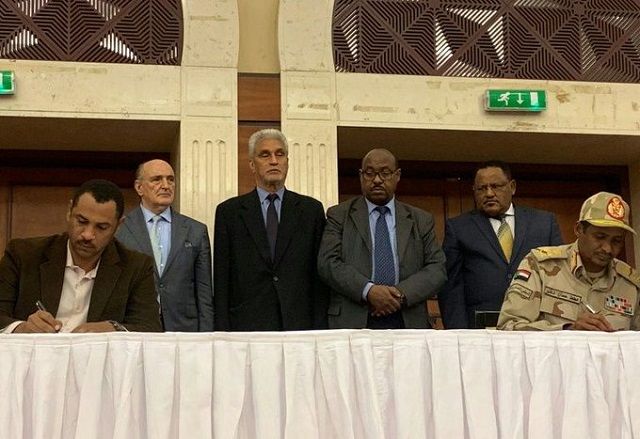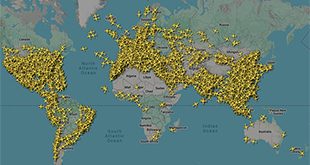
Khartoum, Sudan | AFP | Sudanese protest leaders said that talks scheduled for Friday with the country’s military rulers were postponed after rebel members of their movement expressed reservations over a power-sharing deal inked with the generals this week.
The generals and protest leaders initialled an accord Wednesday in Khartoum to form a joint ruling body tasked with creating a transitional civilian administration and they were due two days later to negotiate details of a “Constitutional Declaration” crucial to a successful transition.
But the talks have now been postponed, three protest leaders told AFP.
“We need more internal consultation to reach a united vision,” prominent leader Omar al-Digeir said, adding that no new date had been set for negotiations to resume.
Fellow protest leaders Siddig Youssef and Taha Osman also confirmed the talks had been suspended.
They said three rebel groups that are part of the umbrella protest movement, the Alliance for Freedom and Change, had reservations over Wednesday’s deal called the “Political Declaration”.
“I’m going to Addis Ababa to meet the Sudan Revolutionary Front to get their opinion,” Digeir said, referring to the three groups which are currently based in Ethiopia.
“They are not happy with” the agreement signed with army leaders, Youssef said.
The three groups have said Wednesday’s deal was “unacceptable” to them, insisting it did not talk of bringing peace to Sudan’s war zones or addressing the needs of those affected by the conflicts.
“Unfortunately some parties chose not to pay any attention to those issues and went ahead without consulting with their colleagues,” Gibril Ibrahim, head of the Sudan Revolutionary Front, told reporters in Addis Ababa.
– ‘No one is above the law’ –
The rebel groups had been fighting government forces for years in the war-torn regions of Darfur, Blue Nile and South Kordofan.
Sources close to negotiations told AFP that these groups have demanded that the “Constitutional Declaration” specify that peace negotiations in the three conflict zones would be a top priority for the new transitional government.
Once such a peace deal is finalised, sources said the rebel groups want their representatives to be part of the transitional government.
They also called for the extradition from Sudan of those accused of crimes by the Hague-based International Criminal Court, including ousted president Omar al-Bashir.
Bashir is charged with war crimes, crimes against humanity and genocide for his alleged role in the conflict in Darfur that erupted in 2003.
Friday’s talks were aimed at finalising crucial issues.
They include whether to grant immunity to generals accused for being behind violence against protesters, the formation of a transitional parliament and the role of paramilitaries.
Protest leader Osman said the protest movement was completely against immunity for generals.
“We want to establish a state in which no one is above the law,” he told AFP.
The generals insist the five military figures who will form part of a new joint governing body be granted “absolute immunity” from prosecution over protest-related violence.
– Crucial issues pending –
The generals have also called for a review of the agreed seat allotments to the protest movement in a transitional parliament.
In previous talks held in May, the two sides agreed that 67 percent of a 300-member transitional parliament be alloted to the protest movement.
Friday’s talks were also to discuss the future of the feared paramilitary Rapid Support Forces, whose members have been accused of carrying out a brutal raid on a protest camp on June 3 that killed dozens.
Protesters say their leaders have already offered enough concessions to the generals.
“If both sides hold on to their stances, talks will collapse,” leading Sudanese political analyst Faisal Mohamed Salih said.
Thousands of protesters had converged Thursday on the capital’s prominent Green Square to build pressure on the generals ahead of the scheduled talks.
 The Independent Uganda: You get the Truth we Pay the Price
The Independent Uganda: You get the Truth we Pay the Price


